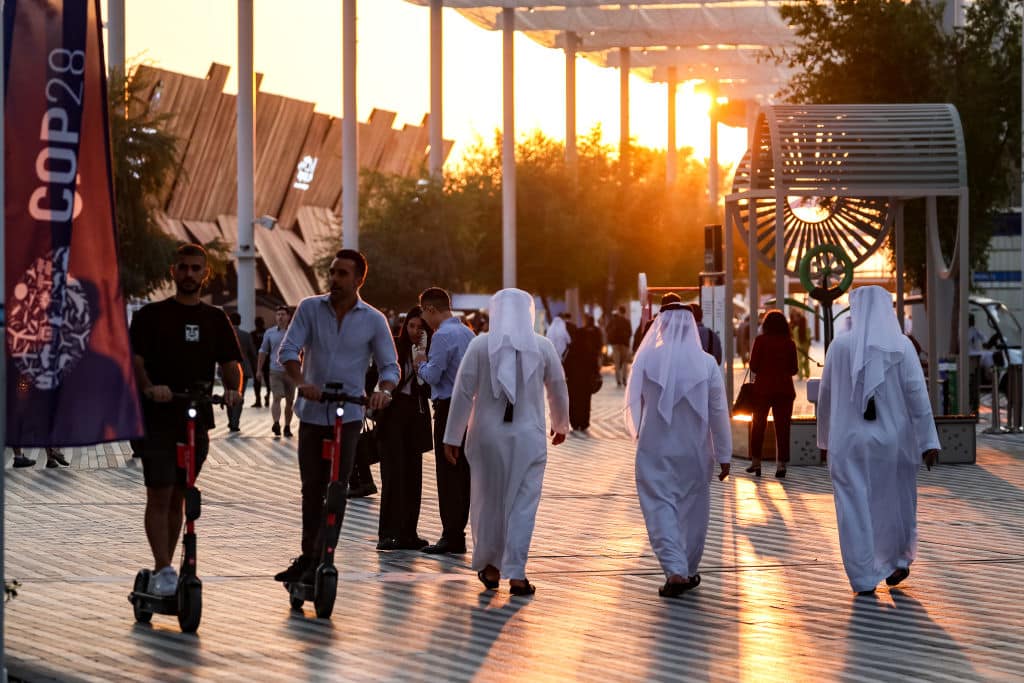As business leaders, climate scientists and global leaders gathered at Expo City Dubai in the United Arab Emirates (UAE) for the 28th edition of the Conference of the Parties (COP) from November 30, the dialogues reflected the dire and drastic changes needed to combat the excesses of climate change – and Africa was at the forefront.
With out-of-control climate conditions, the global community – public and private sector alike – promised to strive together for a more sustainable future. COP28 President Dr Sultan Al Jaber made it clear at the event’s opening plenary speech that “a key success factor across the climate agenda is finance”.
“For too long, finance has not been available, accessible, or affordable. This Presidency is committed to unlocking finance to ensure that the Global South does not have to choose between development and climate actions. Let this be the year that climate finance meets the magnitude of the moment,” he said.
COP28 mobilized over $83 billion in the first five days of the summit, setting the pace for a new era in climate action. On day one of COP28, the Presidency facilitated a historic agreement to operationalize and capitalize funding for Loss and Damage, supporting those on the front lines of the climate crisis with $726 million already pledged to date. The World Bank announced an increase of $9 billion annually for 2024 and 2025 to finance climate-related projects. Multilateral Development Banks (MDBs) announced a cumulative increase of over $22.6 billion toward climate action.
South African President Cyril Ramaphosa, also in attendance, echoed the sentiments but with the caution that “Africa is most vulnerable to the effects of a rapidly changing climate and have to adapt to build resilience within the context of historically low levels of development and severely limited capacity”. He applauded ‘the loss and damage fund’ meant to support and assist developing countries vulnerable to the adverse effects of climate change. A commitment of $100 million was made by the UAE towards the fund, paving the way for other nations to also pledge to the critically important initiative.
Loading...
Dr Ngozi Okonjo-Iweala, Director-General of the World Trade Organization, encouraged by the announcement of this commitment, said to CNBC Africa at the forum: “We are seeing a lot more action than we thought. But we need more. We are far away from where we need to be and developing countries need all the support to make the transition.”
Samaila Zubairu, CEO of Africa Finance Corporation, said in an interview with CNBC Africa that African countries should take ownership of their own carbon market value chains, adding that focusing on communities and preserving the forests is the right way as this will help the continent with its carbon credit.
Climate finance does not necessarily mean funding to transition from fossil fuel to clean energy. For some, it means more. For Kenya, it means housing. Home to 1.2 billion people, in Africa, as urbanization gathers momentum, so does the need to build houses in a more sustainable manner.
Nasra Nanda, CEO of the Kenya Green Building Society, made it clear in an interview with CNBC Africa that they are pushing to unlock financing. She said getting governments involved in green infrastructure will lead to creating more jobs especially for the youth. Statistics currently show that nearly 72 million youth in Africa are not in education, employment or training.
“Young people do not even possess the basic technical skills and unless we fix that, we will not be able to upskill them…or give them [what is] needed to participate in the green economy,” said Abigail
Khuluse, Programme Manager for Economic Inclusion at the National Business Initiative in South Africa. “It’s imperative to give focus to the right skills that enable the youth to pivot or upskill to get opportunities within the green economy.” This requires both political and business will to work together to address the skills gap.
Apart from what Africa needs to do to be an active participant in the fight towards carbon neutrality, there is overwhelming pressure that developed countries place on developing nations. Global carbon dioxide (CO2) emissions from fossil fuels are expected to hit a record high in 2023 – as reported by the Global Carbon Budget report, published during the COP28 climate summit. Countries are expected to emit a total of 36.8 billion metric tons of CO2, a 1.1% increase from last year.
South Africa’s Minister of Forestry, Fisheries and Environmental Affairs, Barbara Creecy did not mince words when she spoke to the press at the summit. “While all countries have the responsibility to transition, responsibility that relates to national circumstances and national capabilities, South Africa fully supports the fact that the European Union (EU) wants to reach carbon neutrality by 2050 – and so they should – because it’s their use of fossil fuels over the last two-hundred years that has created the climate crisis.”
Whichever way one looks at Africa’s approach to climate change, the challenging global environment means fighting for the future of the world’s youngest population will require the continent to take control of its narrative in the climate dialogue.
Loading...
